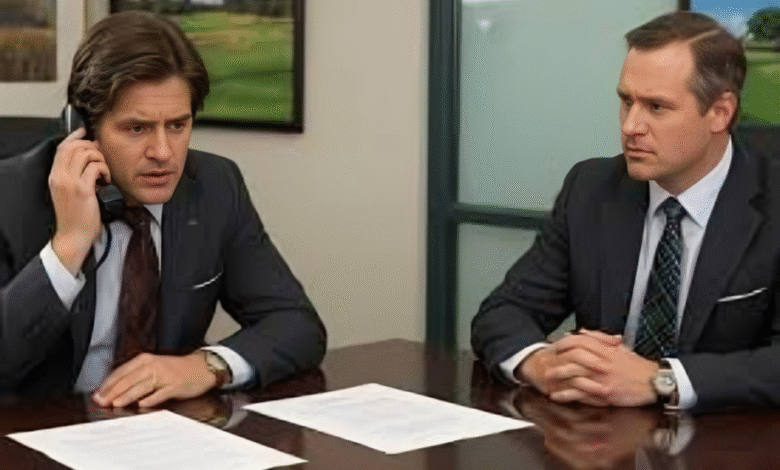Unpacking the Direct Fairways Lawsuit What You Need to Know

In the world of golf marketing, Direct Fairways emerged as a significant player, promising to elevate local golf courses’ visibility through high-quality marketing solutions. However, the company has recently made headlines not for its promotional efforts but due to legal entanglements. The Direct Fairways lawsuit has stirred up controversy, raising questions about business ethics, customer trust, and industry practices. This article offers a comprehensive look at the lawsuit, its implications, and what it means for the future of golf marketing companies.
What Is Direct Fairways Lawsuit?
Direct Fairways Lawsuit is a golf marketing company based in the United States. They claim to help golf courses and related businesses gain exposure through printed scorecards, GPS ads, and other promotional materials. Their business model typically involves selling advertising space to local businesses, with the promise that these ads will appear on golf course materials.
At its peak, Direct Fairways marketed itself as a one-stop-shop for golf course advertising solutions. Their sales team would reach out to small and mid-sized businesses, often via aggressive telemarketing campaigns.
The Origin of the Direct Fairways Lawsuit
The Direct Fairways lawsuit stems from numerous complaints filed by both clients and employees. Over the past few years, the Better Business Bureau (BBB), online forums, and business review platforms were flooded with negative reviews and allegations. These reports indicated questionable sales tactics, unfulfilled marketing promises, and even employment disputes.
Eventually, these grievances led to formal legal actions, culminating in lawsuits centered on:
- Breach of contract
- Fraudulent misrepresentation
- Failure to deliver services
- Unfair labor practices
Key Allegations in the Direct Fairways Lawsuit
1. Misleading Sales Practices
One of the central claims in the Direct Fairways lawsuit involves misleading sales tactics. Plaintiffs argue that they were promised high ROI, enhanced visibility, and active engagement from golfers—but received little to no tangible results.
Several clients alleged that sales reps exaggerated golf course foot traffic or inflated the potential reach of the advertisements.
2. Failure to Deliver Promised Services
Another common complaint is the non-delivery or late delivery of products. Some clients reported that after paying thousands of dollars, they never received the advertising materials they were promised. Others mentioned significant delays with no communication from the company.
3. Employment Violations
Former employees have joined the lawsuit or filed separate claims citing wage theft, unpaid commissions, and toxic workplace environments. There are also allegations of Direct Fairways misclassifying employees as independent contractors to avoid providing benefits.
Direct Fairways’ Response to the Lawsuit
In response to the growing backlash and the Direct Fairways lawsuit, the company has largely denied wrongdoing. Their legal team argues that all transactions were conducted under valid contracts, and many complaints stem from misunderstandings rather than intentional deception.
They claim that external factors such as the COVID-19 pandemic may have affected their service delivery timelines.
The company has also made attempts to settle with some clients privately, possibly to avoid prolonged litigation and further damage to its reputation.
Legal Proceedings and Timeline
Initial Complaints and Investigations (2021 – 2022)
The initial wave of complaints started around 2021, with disgruntled clients and employees reaching out to consumer advocacy groups.
Filing of the Direct Fairways Lawsuit (Early 2023)
Class-action lawsuits and individual claims began appearing in various jurisdictions across the U.S. These lawsuits were consolidated in some cases due to the similar nature of the allegations.
Court Hearings and Ongoing Litigation (2023 – 2025)
As of mid-2025, the Direct Fairways lawsuit is still making its way through the court system. Preliminary hearings have taken place, and discovery is ongoing. Plaintiffs are pushing for compensation and a public acknowledgment of the company’s alleged misconduct.
Customer Impact and Reaction
Loss of Trust
The lawsuit has shaken the confidence of many small businesses that had invested in Direct Fairways’ services. Some expressed regret over signing contracts without thoroughly vetting the company.
Financial Damage
Businesses claim to have lost thousands of dollars. Many hoped their advertising investment would attract local golfers and generate leads, but the promised ROI failed to materialize.
Calls for Greater Oversight
The Direct Fairways lawsuit has led to calls for more regulation and transparency in the golf marketing space. Some industry experts argue that marketing companies should be required to provide performance metrics and clear refund policies.
Industry Analysis: What This Lawsuit Means
The Direct Fairways lawsuit isn’t just a scandal limited to one company—it represents a broader issue within niche marketing industries.
Reputation Management
Golf courses that partnered with Direct Fairways have also suffered reputational damage. In an era where online reviews influence consumer behavior, associations with controversial companies can harm even innocent third parties.
Need for Accreditation and Monitoring
This case highlights the need for third-party audits and industry watchdogs to prevent future abuses. Businesses must demand more accountability from marketing vendors, especially those relying on aggressive telemarketing and door-to-door sales.
How to Protect Yourself from Similar Issues
If you’re considering working with a marketing company like Direct Fairways, keep the following in mind:
1. Demand Transparency
Ask for a detailed breakdown of deliverables, timelines, and expectations before signing a contract.
2. Check Reviews and References
Search for third-party reviews and testimonials. Speak directly with other businesses who have worked with the company.
3. Avoid High-Pressure Sales Tactics
If a sales rep pressures you to “sign today or lose the deal,” take that as a red flag.
4. Read the Fine Print
Carefully review cancellation clauses, refund policies, and performance guarantees.
5. Consult Legal Advisors
Before committing large sums, consult a legal advisor to ensure your rights are protected.
Lessons Learned from the Direct Fairways Lawsuit
The Direct Fairways lawsuit teaches important lessons for businesses, employees, and industry regulators:
- For Businesses: Due diligence is non-negotiable. Vet your marketing partners thoroughly.
- For Employees: Know your rights. Understand labor laws before accepting commission-based roles.
- For Regulators: There’s a growing need for regulation in niche marketing sectors, especially those targeting vulnerable small businesses.
Future of Direct Fairways and the Golf Marketing Industry
It remains unclear whether Direct Fairways can survive the legal and reputational fallout of the lawsuit. However, the case will likely lead to long-term industry changes.
Increased Scrutiny
Golf marketing companies will face more questions and demands for transparency from clients moving forward.
Rise of Digital-First Solutions
Businesses may shift towards more trackable, performance-based digital marketing platforms rather than relying on physical media like scorecards or brochures.
Better Contracts and Consumer Protection
Expect to see more standardized contracts and clearer consumer protection guidelines in the future.
FAQs About the Direct Fairways Lawsuit
Q1: What is the Direct Fairways lawsuit about?
The Direct Fairways lawsuit involves allegations of deceptive marketing practices, failure to deliver services, and employee rights violations.
Q2: Is Direct Fairways still operating?
Yes, as of 2025, Direct Fairways is still operational but facing significant legal challenges and scrutiny.
Q3: Who filed the lawsuit against Direct Fairways?
The lawsuit includes both business clients and former employees, some of whom have filed class-action suits.
Q4: How can businesses protect themselves from similar scams?
Businesses should perform due diligence, avoid high-pressure sales tactics, and seek legal counsel before signing contracts with any marketing company.
Q5: What could be the outcome of the Direct Fairways lawsuit?
Potential outcomes include financial compensation for plaintiffs, stricter industry regulations, and significant operational changes—or even shutdown—of the company.
Conclusion
The Direct Fairways lawsuit is a cautionary tale for businesses navigating the complex world of niche marketing. While Direct Fairways may have once promised unmatched visibility for local golf courses and small businesses, its legal troubles suggest a deeper problem of trust, accountability, and transparency. As the case continues to unfold, the industry—and the businesses that rely on it—must learn to demand better. Whether through regulatory reform, greater scrutiny, or simply more informed decision-making, this lawsuit could be the turning point that reshapes the golf marketing landscape.




